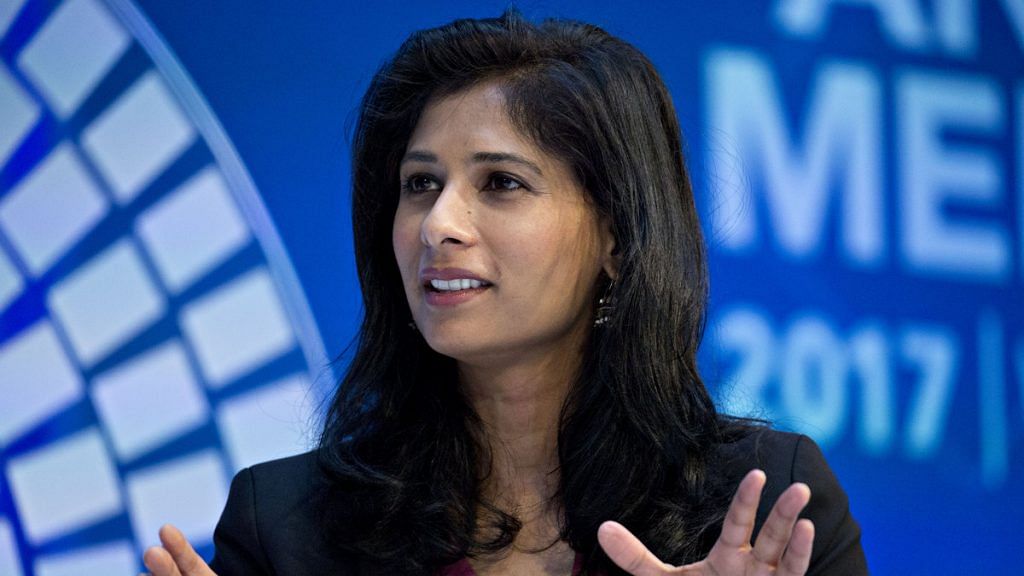New Delhi: The scale of spending by India to combat the impact of the Covid-19 pandemic can be much higher than current levels, according to Gita Gopinath, chief economist, International Monetary Fund (IMF).
In a digital Off the Cuff conversation with ThePrint’s Editor-in-Chief Shekhar Gupta Thursday, Gopinath said the measures announced by India so far amount to only 1 per cent of its gross domestic product (GDP).
While the government has announced cash transfers and free food grains, the Reserve Bank of India has announced a three-month moratorium for loans, as well as measures to ensure adequate working capital for firms, support to non-banking finance companies and mutual funds.
“This is a crisis where we are advising all members to do what is needed. The scale of the crisis is so big and the policy response has to be commensurate to that. Now, India has taken many important steps. The early lockdown was a very good step. They have also announced targeted support measures in the form of cash and food transfers and in terms of support to firms,” she said.
“Our view is that the scale of this could be much larger. If you look at the incremental measures that have been taken, (the spending) is around 1 per cent of GDP… On an average, emerging markets are spending 2.5 per cent of their GDP to combat the crisis. So, we do think that more can be done, and the scale of the spending could be much higher than what it is now,” she added.
Also read: Raghuram Rajan bats for quick reopening of economy, says India can’t support poor for long
Targeted spending
Gopinath stressed the need for targeted spending to use the available resources to best handle the crisis.
“This is a crisis that calls for very targeted measures. You don’t want to do helicopter drops all across the economy,” she said, pointing out that the health sector, households, workers and firms will require government support.
She said firms should not be bankrupt before the end of the crisis, adding that besides loan forbearance, wage subsidies are also required, but with conditionalities, to ensure that the fund support is used to preserve employment of the workers, and not to make the shareholders richer.
If one doesn’t want workers to be fired, then firms have to be supported to pay wages, Gopinath said.
Forecasts will be revised
The IMF had forecast that the Indian economy will grow at 1.9 per cent in 2020-21. But the forecast was made before India announced the extension of the lockdown until 3 May.
Gopinath said there is a lot of uncertainty around forecasts, and they will be revised based on ground realities.
“This is a crisis like no other. We haven’t seen anything like this in our lifetimes. We are seeing a truly global crisis. This is not about advanced economies or emerging economies,” she said.
“Everybody is getting hit and getting hit hard. Our forecast for this year is probably the worst since the great depression. There is so much uncertainty and it could get worse. We might not have reached the bottom of this,” she added.
Gopinath said India has taken many steps to improve the ease of doing business, but more needs to be done to bring in land and labour reforms, to encourage manufacturing in the country.
Also read: Modi govt is being sensible by not announcing a large fiscal package to help revive economy
